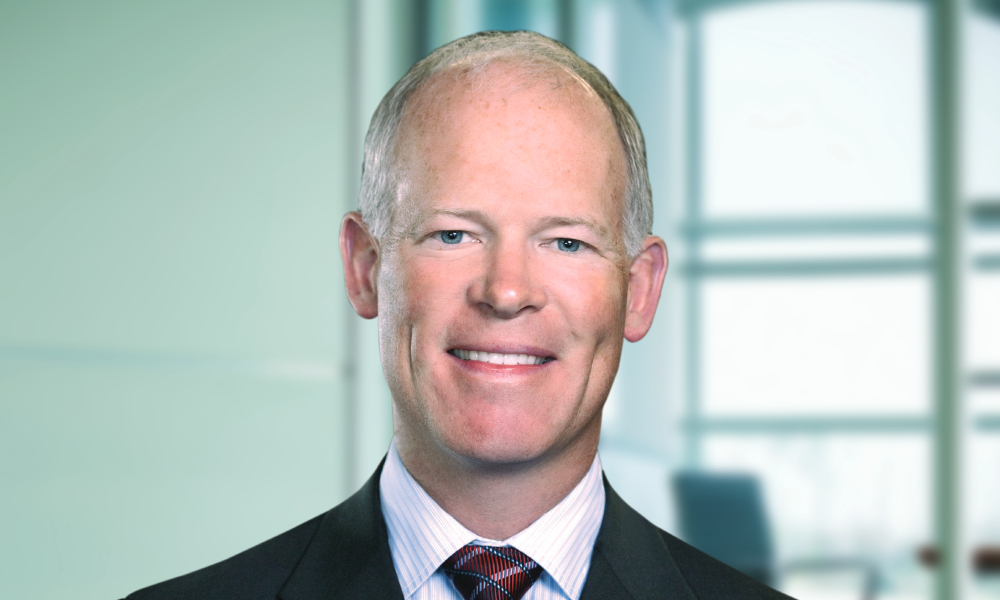
Lawyer’s statement of claim in tragic auto-accident case lays blame against Uber and City

Sponsored article
One personal injury lawyer, pursuing justice in a tragic auto-accident case, is pointing the finger at two bigger actors: Uber and the City of Toronto.
David MacDonald, partner at Thomson Rogers, has filed a statement of claim against Uber Canada and the City of Toronto, amongst other defendants, on behalf of Cheryl Hawkes, whose son Nicholas Cameron was killed and on behalf of Monika Traikov who was badly injured when the UBER they were riding in was rear-ended on the Gardiner Expressway after her driver pulled partially over to pick up his cell phone which had fallen to the floor of the vehicle.
While the statement of claim names the uber driver, Abdihared Bishar-Mussa, and the driver of the vehicle that struck Bishar-Mussa’s uber, MacDonald says the wider responsibility falls on the rideshare app company and the city for creating the circumstances of this accident.
“Uber drivers are set up for a fall by Uber’s basic business model, causing drivers to be tied to their phones visually and attentively, distracting them from paying attention to the road and in breach of the Highway Traffic Act,” MacDonald says. “and City has compromised Toronto passengers and pedestrians with their ride share regulations in allowing this and by failing to ensure they know Toronto roads and demonstrate competence through an in-vehicle training program.
MacDonald noted that in this case, the driver was hired to take Traikov and Cameron to Pearson airport. He initially got on the Gardiner expressway headed east, away from Pearson, before Traikov and Cameron told him to leave the highway and go west. When his phone was dislodged, headed westbound on the Gardiner, the driver pulled partially over rather than exiting the highway to pull over as he should have. MacDonald says this points to both the reliance UBER drivers have on their cell phones, and the lack of adequate training for these drivers mandated by the city.
MacDonald says the claim is advanced against UBER because Uber requires the driver to divide attention between the road and phone and incentivizes the driver to pay unsafe attention to the phone which is inherent in Uber’s business model. Even though UBER drivers aren’t treated as employees by the app company, MacDonald says the business model mandates drivers use their phones constantly, to follow directions and plan for the next ride. He says, too, that the city failed to protect passengers and pedestrians and other drivers by failing to mandate appropriate in car training and testing as a requirement of licensing. In this case the driver lacked the sufficient training to find his way to the intended destination without paying full attention to his phone, to the cost of the personal safety of the passengers and other drivers.
MacDonald’s statement of claim makes extensive mention of the lack of training this driver received from Uber as well as the business model’s reliance on driver cell phone use. As for the City of Toronto, the statement of claim alleges they acted in bad faith in eviscerating previous bylaw driver for hire training requirements, removing the requirements for in vehicle testing and locality familiarity testing for taxi and private transportation drivers, while at the same time the city was reaping revenue from every ride share ride.
“The absence of the training and the reliance upon the cell phone is a fatal flaw in UBER’s business model, that that means that every passenger who gets in an Uber is exposing themselves to substantially larger risks of injury,” MacDonald says. “Every Uber trip is exposing the pedestrians of Toronto to increased risk that they're going to be to find themselves in harm's way by virtue of a distracted driver required by their enabling ride share company to pay full and ongoing attention to a phone rather than to the busy pedestrian, bicycle and vehicle traffic which requires and should be receiving the Uber driver’s full attention at all time.”
Uber’s mandate to its drivers that they focus attention on their phone, increases the number of accidents and endangers others, MacDonald states, and has led to and will continue to be responsible for an increasing number of law suits against Uber. MacDonald’s argument is that the Uber app is a fundamentally a faulty tool created by Uber, required by Uber to be the platform of all driver interaction in busy traffic and one that endangers them, their passengers, and other road users. He says that this tool, its distraction to the driver and the driver’s preoccupation with it and lack of appropriate training was what caused the accident on the Gardiner.
Aside from the stated goal of damages for his clients, MacDonald hopes this litigation will result in major changes around how Uber is regulated and its drivers are trained. He says that these claims are the only vehicle civil litigators have to affect change, but that in the end he wants to see safer streets and better drivers.
“This is about a recognition and a change that's required for my kids, your kids, my parents, your parents, all drivers, pedestrians and ride share passengers in Toronto,” MacDonald says. “One goal of this lawsuit is the reinstatement of a training program for drivers to allow Toronto Public pedestrians and passengers and drivers to be more safe.”